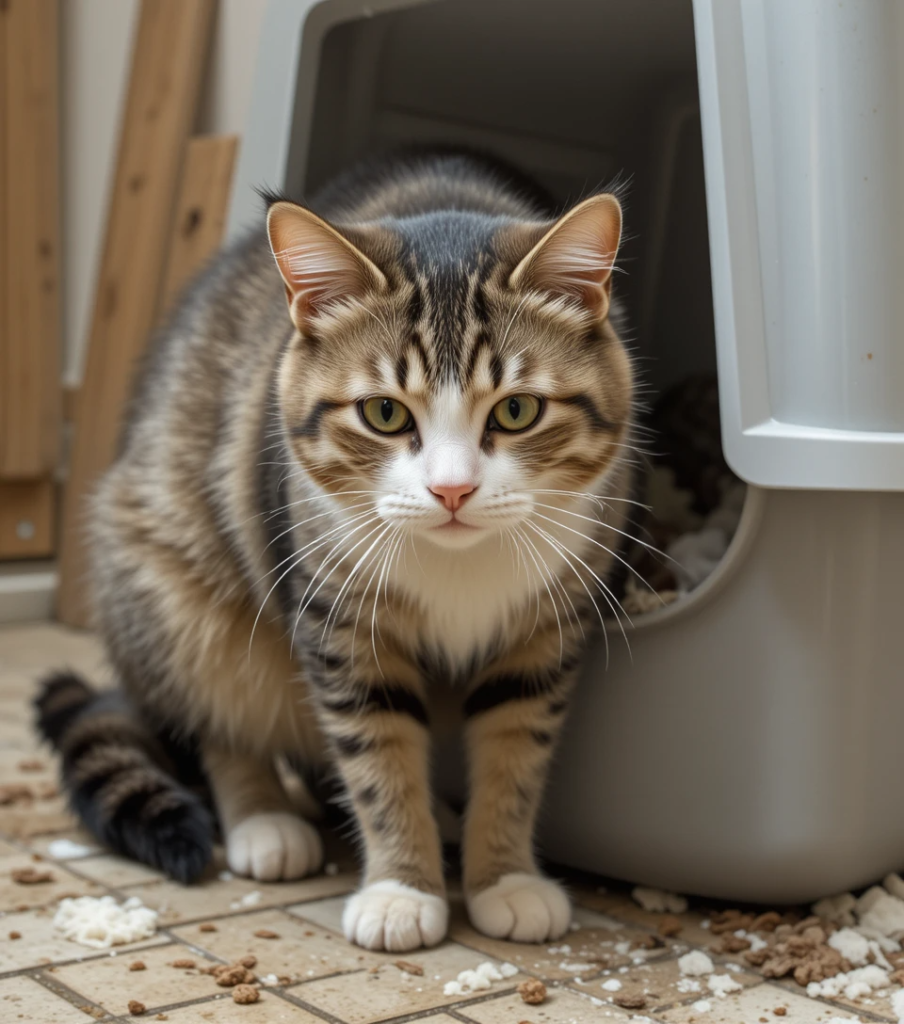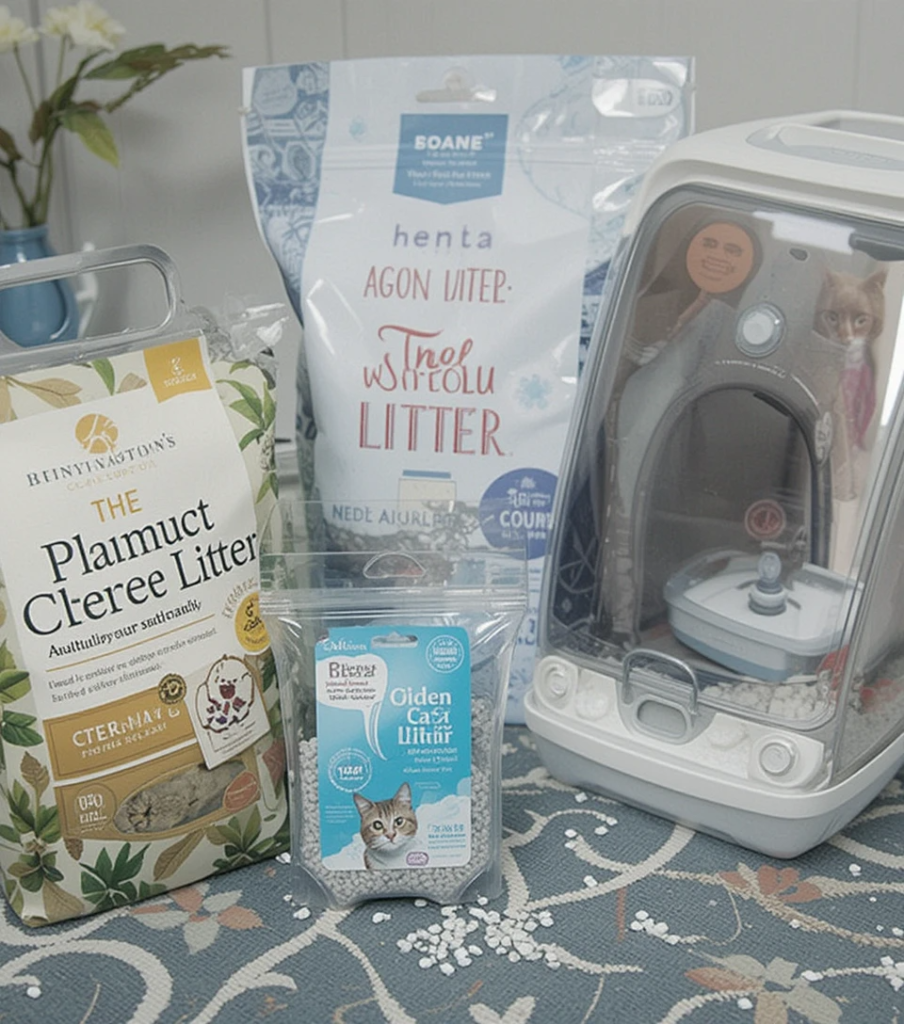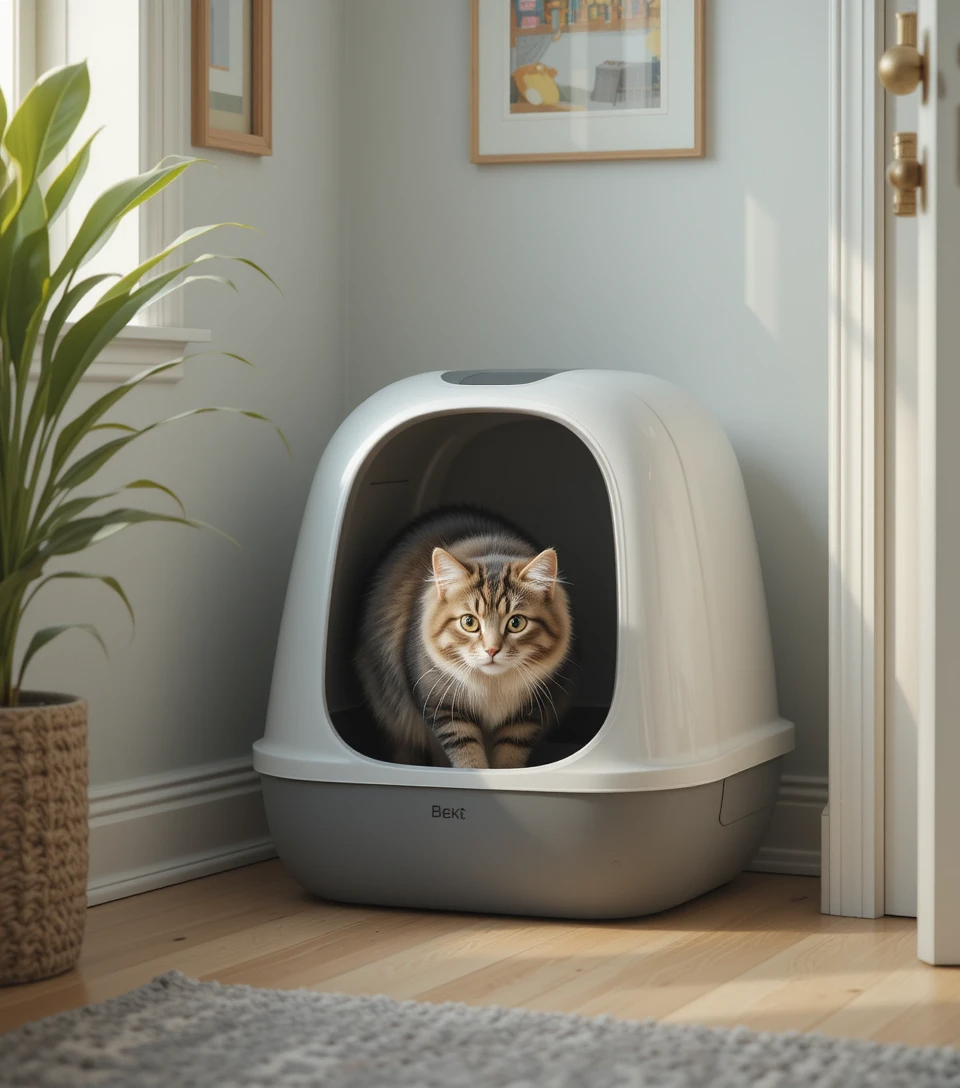Introduction
Imagine this: you finally find a quiet, spotless restroom after searching all day — pure relief, right? Your cat feels exactly the same about their bathroom space! Cats are fastidious creatures that thrive on cleanliness and privacy, and their litter box setup plays a crucial role in their happiness and health. In this article, we’ll explore why providing a clean and private bathroom space is essential for your feline friend and how a few simple changes can bring “pure bliss” to their daily routine.
1. Why Cats Crave a Clean Bathroom Space
Cats are instinctively clean animals, a trait inherited from their wild ancestors who covered their waste to avoid predators. A dirty litter box triggers discomfort and even stress because it clashes with their natural desire for cleanliness. Ensuring a consistently clean litter area not only satisfies their instincts but also encourages regular bathroom habits, helping you avoid accidents around the house.
2. The Importance of Privacy in Cat Bathroom Habits
Privacy is more than a luxury for cats — it’s a necessity. In a noisy, high-traffic area, your cat may feel too exposed, leading to anxiety or even litter box avoidance. By placing the litter box in a quiet, low-traffic spot, you respect their need for a secure, private place to do their business. Some cats even prefer covered litter boxes for an added sense of seclusion, although others might feel trapped. Observing your cat’s preferences is key.
3. How a Dirty Litter Box Affects Cat Health and Behavior

Neglecting litter box cleanliness can cause serious health issues such as urinary tract infections (UTIs) and constipation. Behaviorally, cats might express their displeasure by eliminating outside the box or becoming unusually aggressive or withdrawn. A consistently clean bathroom space supports their physical and emotional well-being, preventing these problems before they start.
4. Setting Up the Perfect Private Bathroom Space for Your Cat
Creating an ideal cat bathroom isn’t complicated, but it does require thoughtful setup:
- Choose the right box: Larger, open, or semi-enclosed boxes often work best.
- Pick a strategic location: Quiet corners, away from food and heavy foot traffic, are ideal.
- Multi-cat homes: Use the “one box per cat, plus one extra” rule to prevent territorial disputes.
Providing both clean facilities and sufficient privacy makes a dramatic difference in your cat’s comfort level.
5. Maintenance Tips: Keeping It Clean and Inviting
Maintenance is the golden rule of litter box bliss:
- Daily scooping keeps the box fresh and inviting.
- Weekly full litter changes prevent odors from building up.
- Monthly deep cleans (scrubbing the box with unscented soap) help eliminate lingering bacteria and smells. Remember, what smells “mild” to us can be overwhelming for a cat’s sensitive nose!
6. Extra Comfort: Tools and Products That Help

Upgrade your cat’s bathroom with simple products that maximize comfort:
- High-quality, clumping litter for easy scooping and odor control.
- Litter box liners and mats to simplify cleanup and trap scattered litter.
- Odor-neutralizing sprays (cat-safe only) to maintain a fresh environment.
- Automatic litter boxes can be a fantastic option for busy cat parents, ensuring near-constant cleanliness.
These small investments go a long way toward creating a space your cat will love.
7. Behavioral Signs Your Cat Isn’t Happy With Their Bathroom
Pay attention to these warning signs:
- Going outside the box on carpets, beds, or corners
- Excessive digging or scratching around the litter box
- Vocalizing (crying or yowling) during litter box use If you spot any of these behaviors, it’s time to reassess the cleanliness, location, or type of litter box you’re providing.
8. Benefits of a Clean, Private Space: Happy, Healthy Cats
When you prioritize a clean and private bathroom for your cat, you’ll notice:
- Better moods — a calmer, more relaxed feline companion
- Fewer vet visits — preventing infections and digestive issues
- Stronger bonds — a happier cat is a more affectionate and trusting cat
Ultimately, a small amount of daily effort pays off in the form of a healthier, more blissful life for your beloved pet.
Conclusion
Providing your cat with a clean and private bathroom space isn’t just a chore — it’s an act of love that brings “pure bliss” to their daily lives. With a little thoughtfulness and routine care, you can create a stress-free, comfortable environment that keeps your cat healthy, happy, and feeling truly at home.
Frequently Asked Questions (FAQs)
- Why do cats need a clean bathroom space?
Cats are naturally clean animals, and a dirty litter box can cause stress, illness, and behavioral issues. - How often should I clean my cat’s litter box?
You should scoop it daily and fully replace the litter weekly for optimal cleanliness. - What is the best type of litter for odor control?
Clumping, unscented litters typically offer the best odor control without overwhelming your cat’s sensitive nose. - How do I create a private bathroom space for my cat?
Place the litter box in a quiet, low-traffic area and consider using covered boxes if your cat prefers added privacy. - Should I use a covered or uncovered litter box?
It depends on your cat’s preference — some like the seclusion of a covered box, while others prefer an open view. - How many litter boxes should I have for two cats?
The general rule is one litter box per cat, plus one extra — so, three litter boxes for two cats. - What signs show that my cat dislikes their litter box setup?
Look for signs like avoiding the box, eliminating elsewhere, scratching excessively, or vocalizing during use. - How can I reduce litter box odors naturally?
Use high-quality clumping litter, scoop daily, and clean the box regularly without heavily scented products. - Is an automatic litter box a good option for my cat?
Automatic boxes can help maintain cleanliness but may not be ideal for shy or nervous cats at first. - Can stress from a dirty litter box cause health issues?
Yes, prolonged litter box stress can lead to urinary tract problems, constipation, and other health concerns.

